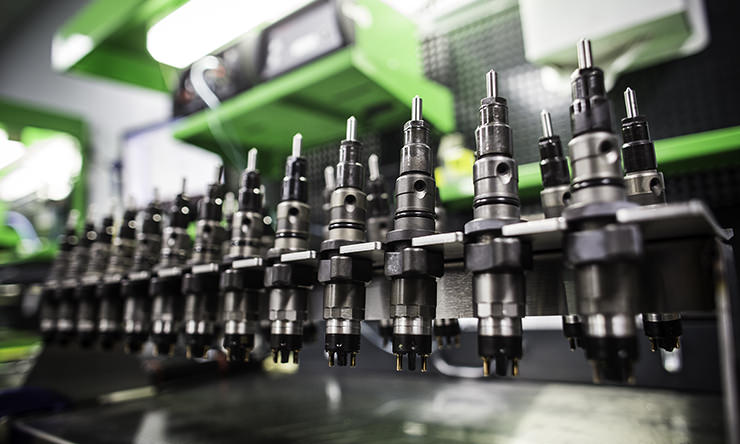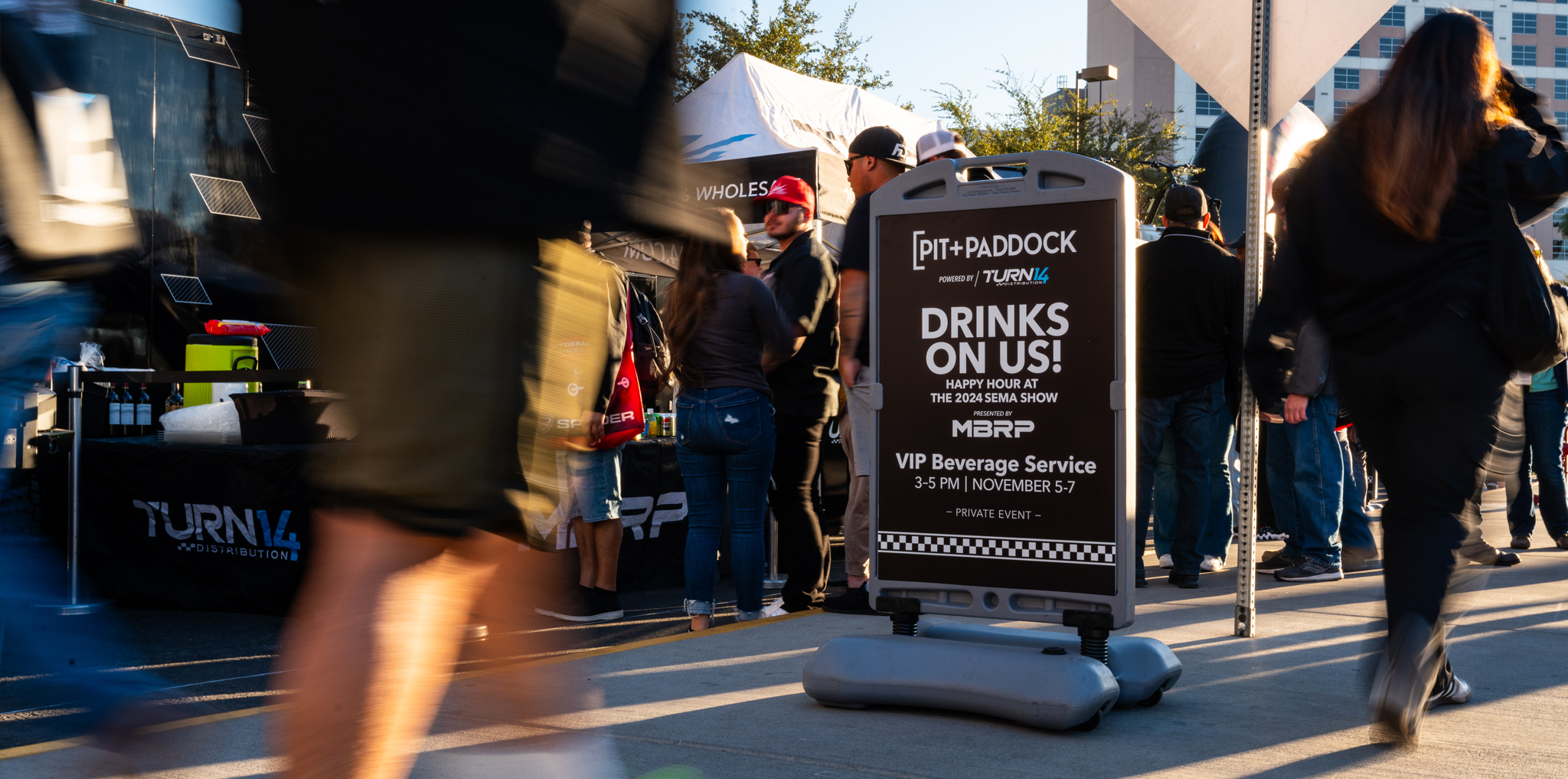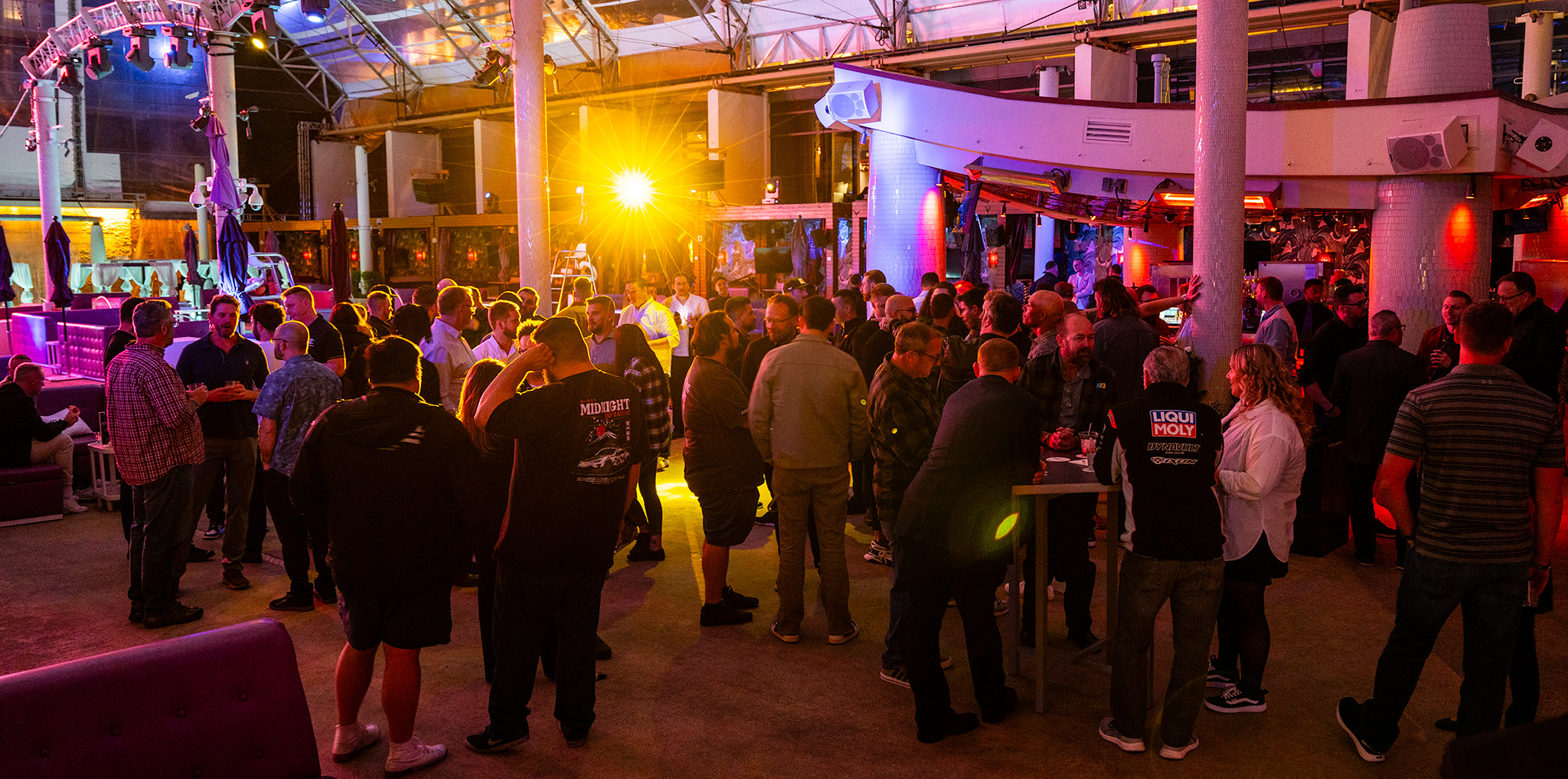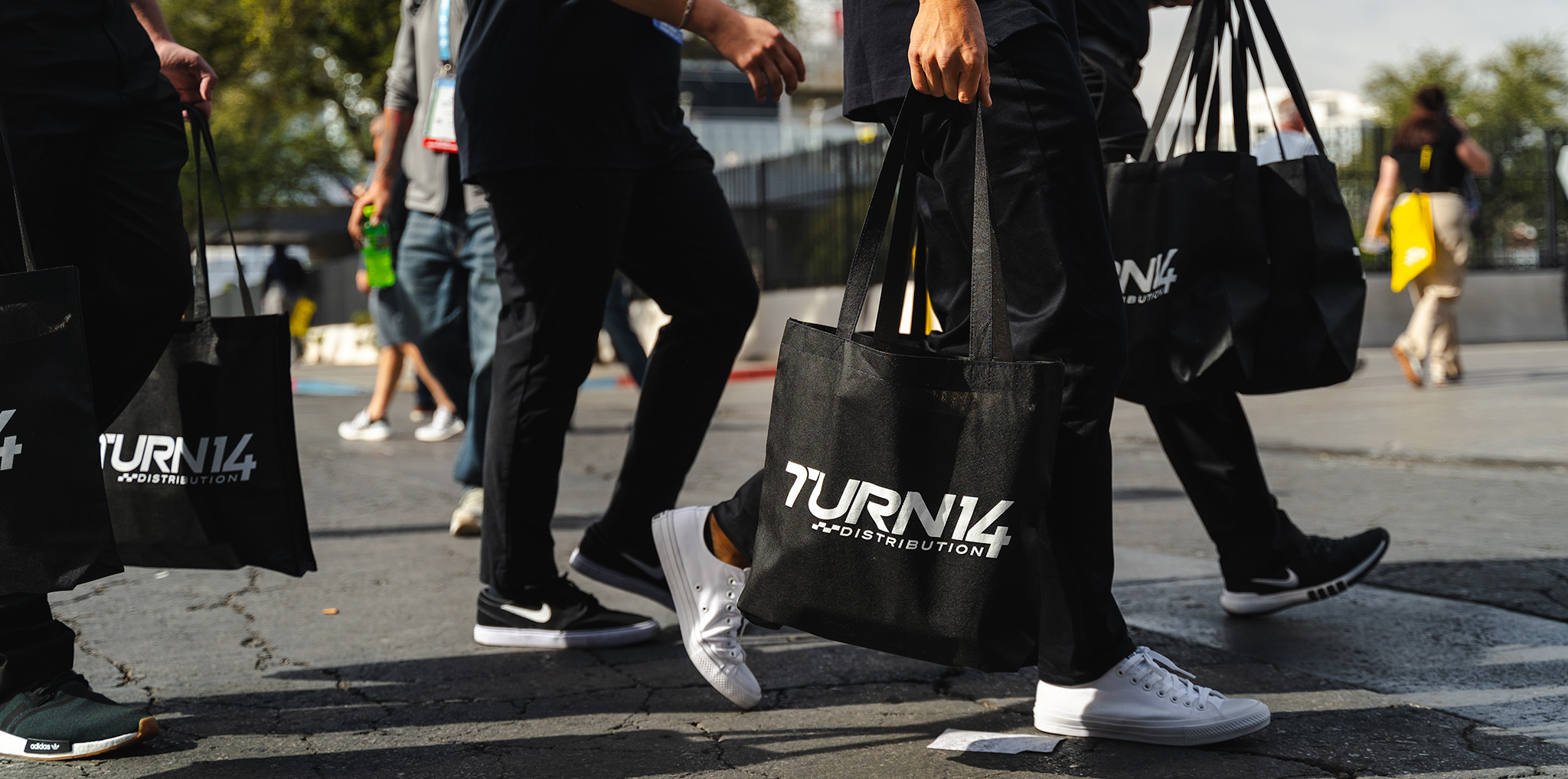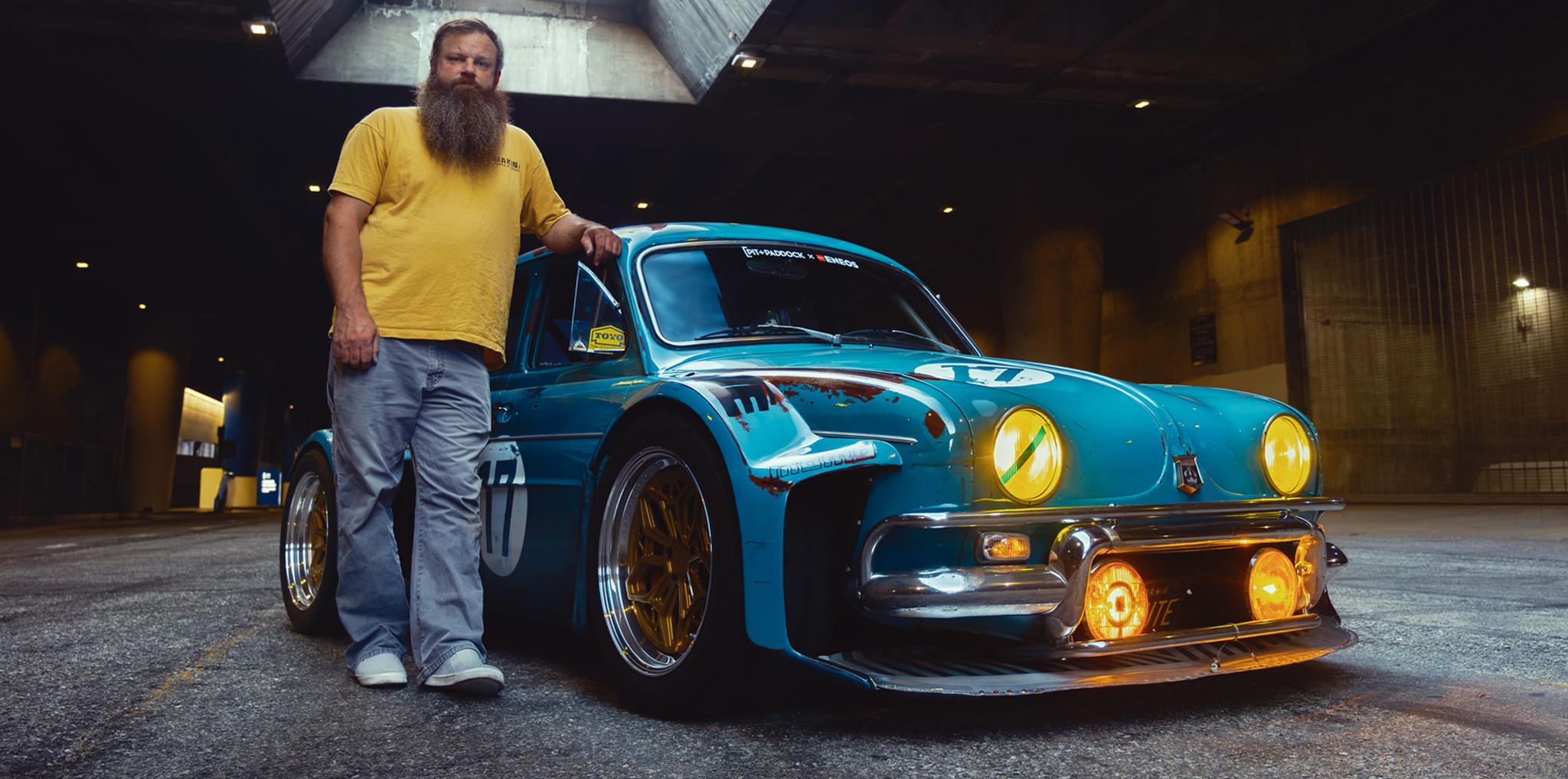Prior to coming onboard here at Front Street, my experience with diesel trucks was quite limited – it basically consisted of knowing I had to wait to turn the key to start the engine so I didn’t screw up the cosmic rays that make diesel combustion possible.
So when I was presented with the opportunity to cover the Ultimate Callout Challenge earlier this year, I asked whether there were any local diesel shops in Salt Lake City that I could check out during the same trip – you know, the ol’ ‘kill two birds with one stone’ concept. Front Street’s parent company, Turn 14 Distribution, has a solid relationship with the Industrial Injection gang, and later that day I found out that we had arranged the time to visit during our venture to the western half of the country; it ended up being informative and quite educational for me.
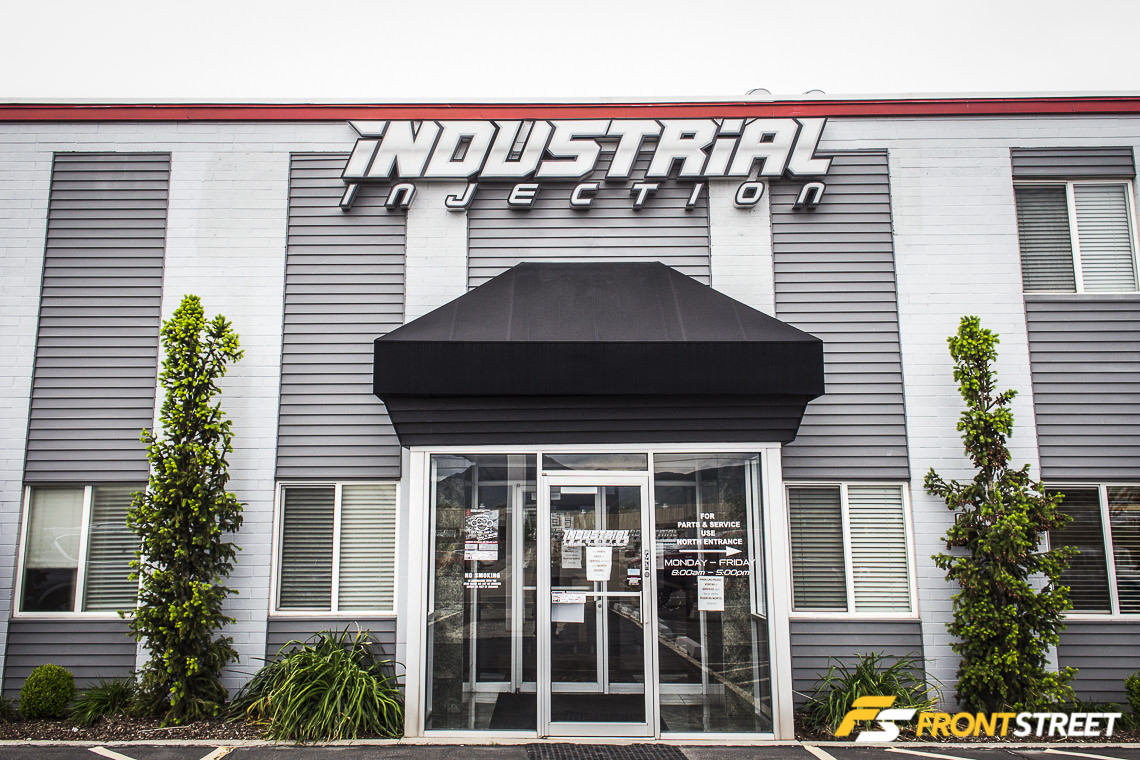
As a domestic performance enthusiast, I understand the basic concepts of engine performance quite well – suck, squeeze, bang, blow – but needed a primer on the diesel side of things. Upon arriving at Industrial Injection, we were greeted by Sterling Harper, the company’s Distribution Manager, and, as I would later find out, a walking encyclopedia of all things II. He walked us around the ‘big shop’, pointing out all of the things that make Industrial Injection unique, and giving us a history lesson on the company in the process.
It turns out that Industrial Injection initially wasn’t a diesel performance shop at all; the company’s roots trace back to owner Brady Williams, who founded the company to provide service for construction, agricultural, and mining equipment along with OTR truck engines.
Today, Industrial Injection is a family affair; Brady’s three sons are responsible for different parts of the business. Shane Williams runs the turbocharger shop, Brett Williams runs the marketing, advertising, and sales departments, while Cody, who started building injectors at 17, today is regarded as one of the premier diesel fueling experts in the country. And Jerolyn Williams – Brady’s wife and the one who holds the purse strings as CFO – keeps everyone in line. I can attest to this; during our visit, the entire operation was like a well-oiled machine.
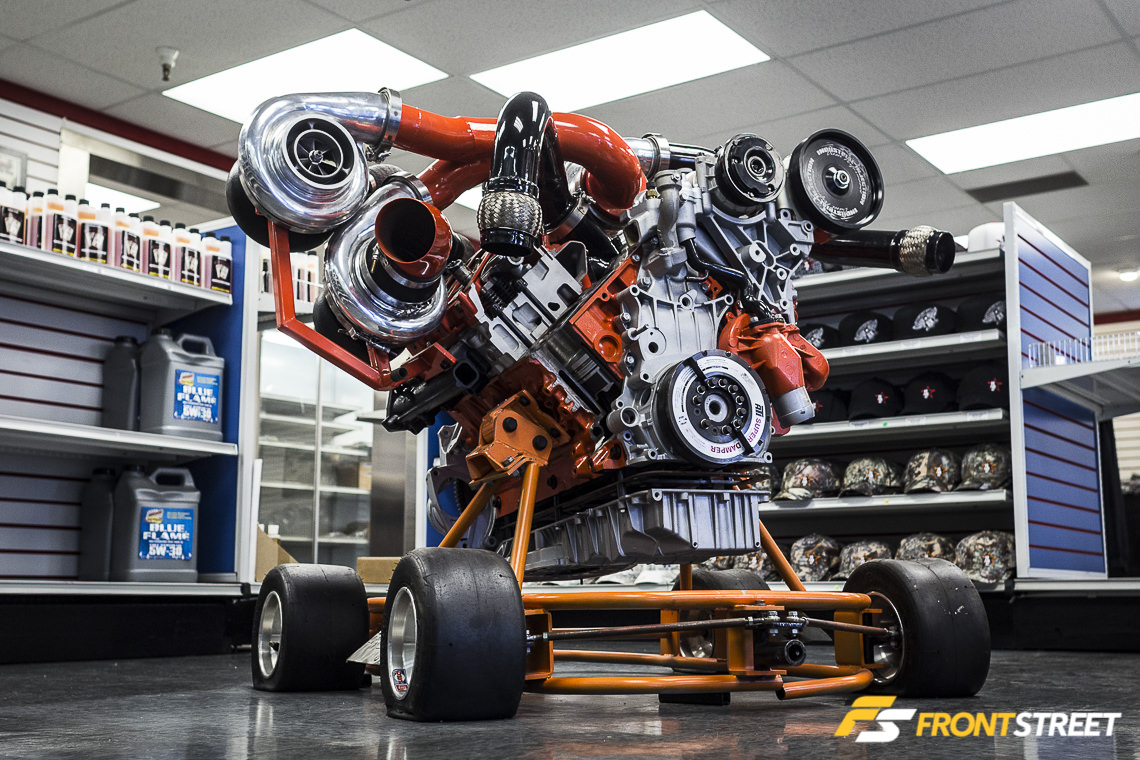
Once the diesel engine found a home in the pickup trucks of the Big Three, Industrial Injection found a new calling, providing performance upgrades, parts, and full service to the diesel performance industry. They’ve grown to two large buildings; one is centered around vehicle service, warehousing, and turbocharger rebuilding, while the second, smaller building (and II’s first home) today caters specifically to the fuel side of the equation.
On the day we visited, the entire shop was full of Ultimate Callout Challenge competitors who were swapping their trucks over for sled-pull duty. It was a madhouse – transmission swaps, rearends, suspension systems being changed over, all sorts of chaos. It was really amazing to see each of the teams working together to accomplish their goals, and even more refreshing to see that the II team opened their shop, lifts, and tools up to these competitors.
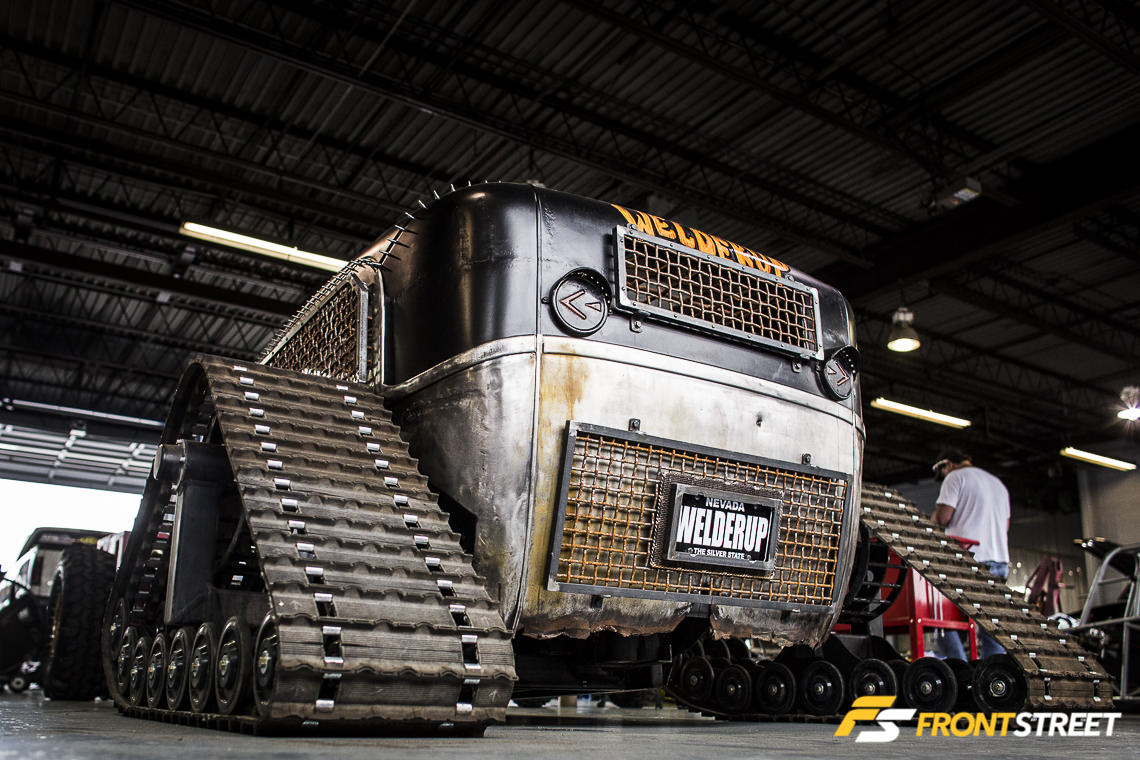
If you’re a fan of Vegas Rat Rods on the Discovery Channel, you may recognize this monster. Steve Darnell collaborated with the Industrial Injection team to bring it to life.
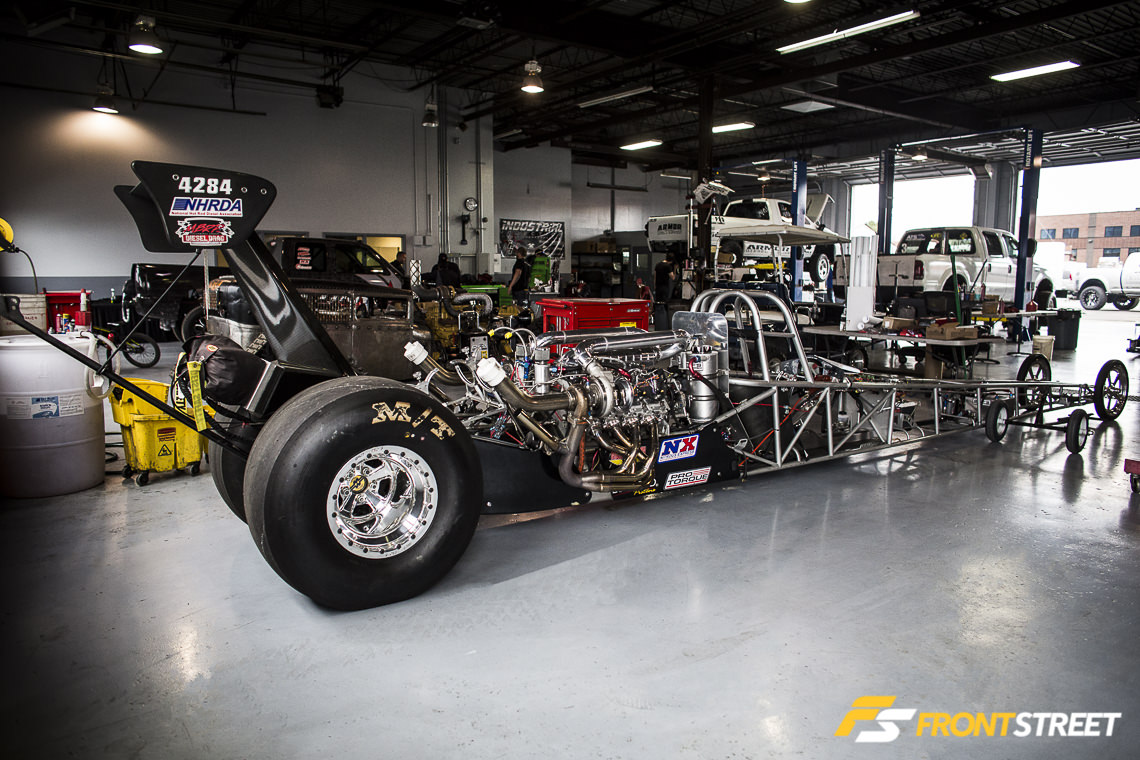
Wade Moody’s uncovered points-leading NHRDA Top Diesel dragster was hanging out in the shop. This beast runs mid-4.70s in the eighth-mile and 7.0s in the quarter quicker than 200 mph with its 2,100-horsepower twin-turbocharged Duramax powerplant. Industrial-modified Borg-Warner EF-R turbos combine with II’s XP CP3 pumps and Cobra injectors to make the big power.
Industrial’s engine room was silent on this day, perhaps because engine builder Shawn Baca was involved in changing over his Ultimate Callout Challenge Duramax for the UCC sled-pull competition. Baca absolutely crushed the dyno portion of the event; he finished first by a wide margin with a run of 2,474.6 horsepower and 3,240.50 lb-ft of torque – fitting for a guy who spends his days finding ways to make horsepower.
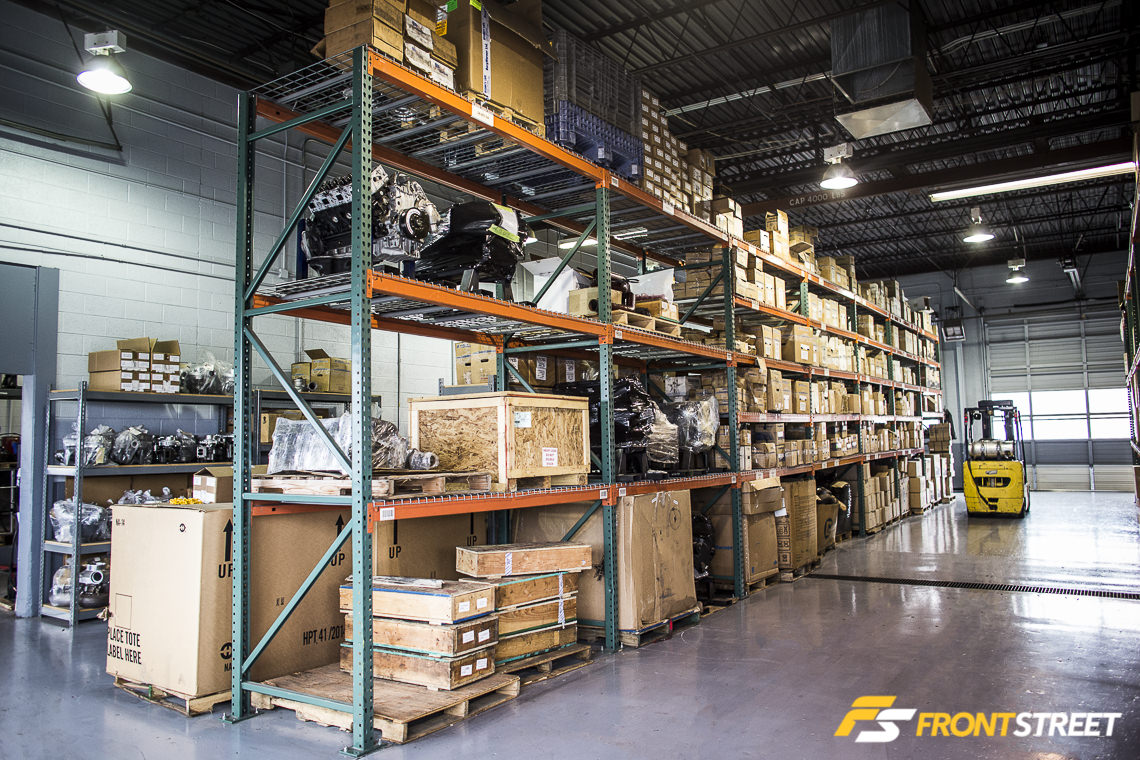
The size of the building is deceiving from the front door – there’s no hint of what lurks inside. Once you get past the shop area, the large warehousing section comes into focus. Parts covered all of the available rack space, up to and including complete engines.
As we mentioned earlier, the turbo division at Industrial Injection is a large part of the business. From brand-new housings to completed units and old, rusted-up spare parts, there were enough turbo pieces sitting on the shelves and piled into boxes, nooks, and crannies, to satisfy any boost-lover.
Turbos, turbos, and more turbos. Big, small – they do ‘em all.
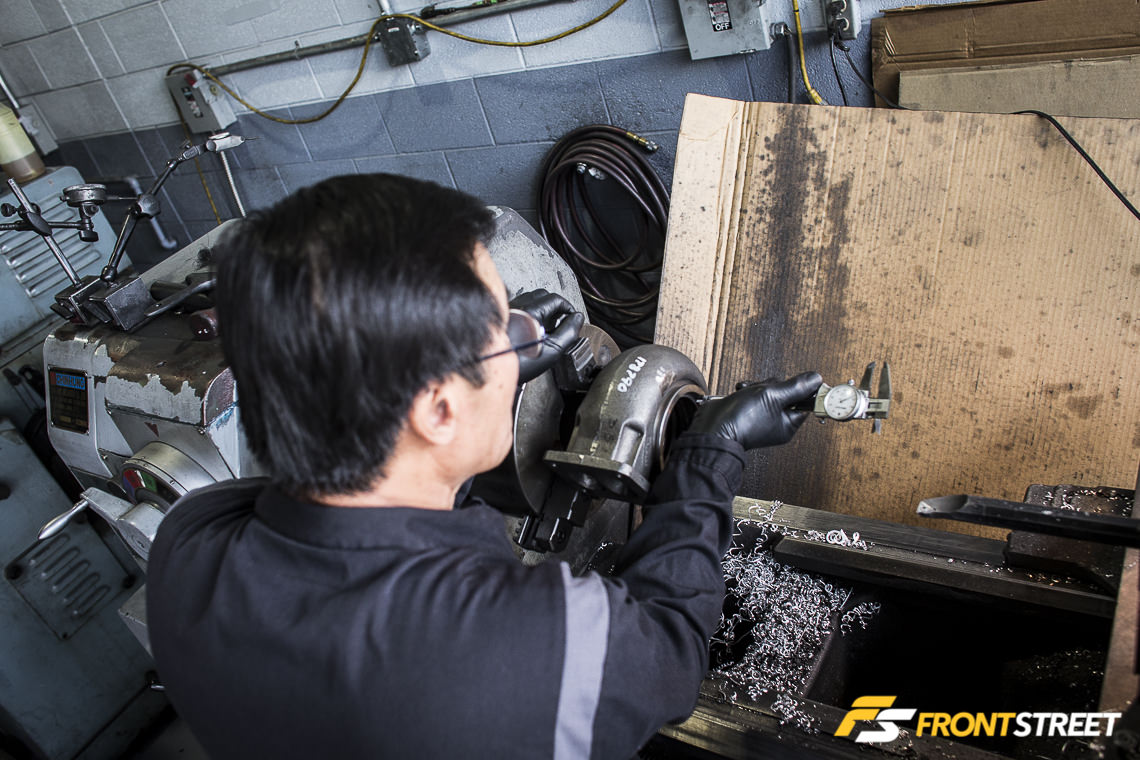
There’s also a full machine shop on the premises capable of performing any necessary processes to remanufacture customer turbochargers.
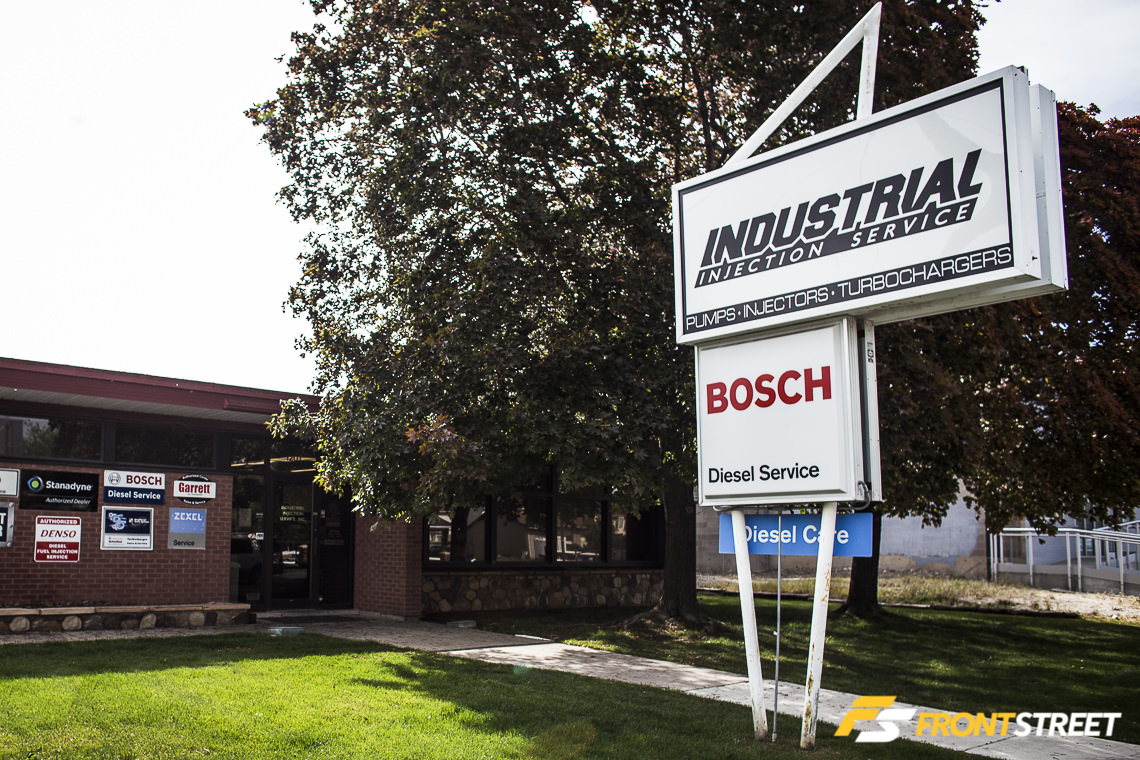
This is the front of the fuel shop – it’s maybe 10-percent the size of the repair shop, but most of the amazing magic of Industrial’s fueling modifications happens within these four walls.
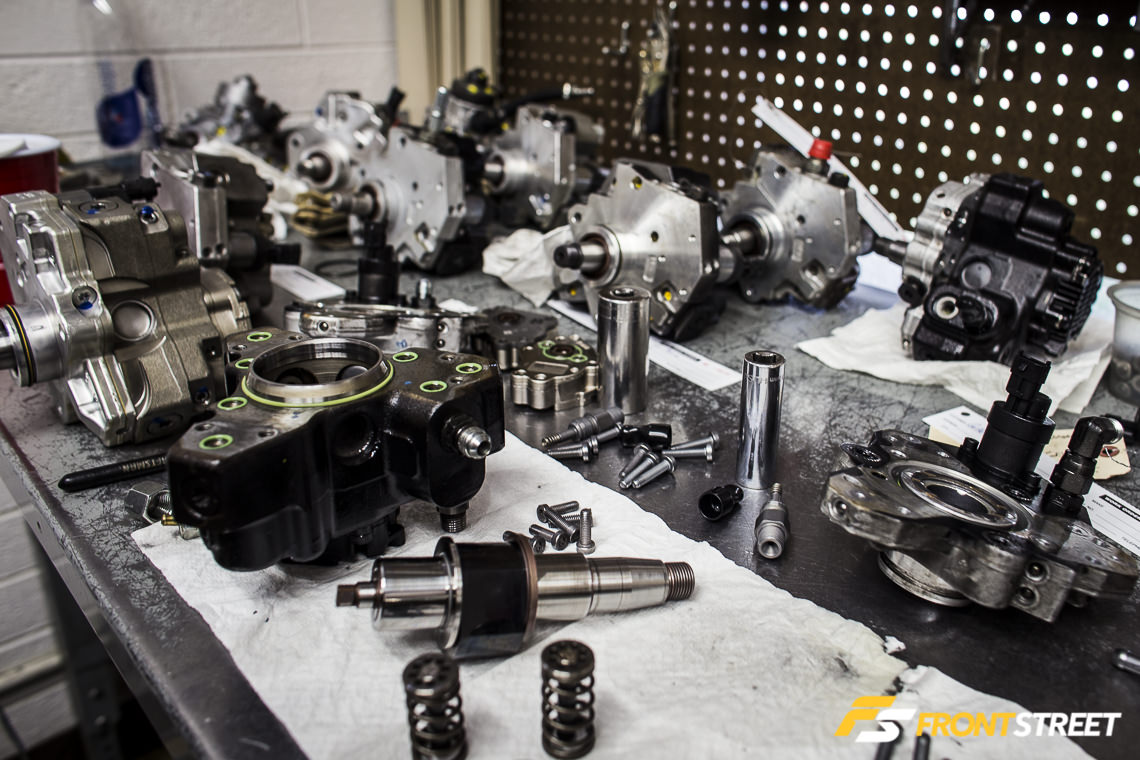
The fuel shop repair and modification team performs just about any task you can imagine when it comes to diesel fueling. In this room, they rebuild high pressure CP3 injection pumps.
Not only do they repair and rebuild the pumps, they also subject them to a full testing regimen before the parts are delivered to customers. These machines run through a torture test to assure their quality and reliability.
Industrial Injection is one of very few – and one of the most prolific – companies who are approved to rebuild and modify Bosch common-rail fuel injectors. The company has made very significant investments into the equipment, and more importantly, the right people, to keep this portion of the business extremely healthy. The equipment is kept in a climate-controlled room and tolerances are held to miniscule variances to ensure the products perform as required when placed into service.
The injector rebuilds are tracked from start to finish, tested rigorously – this young lady’s only job is to make sure each of the injectors the shop services performs exactly as advertised – and then supplied to the end consumer with an information sheet detailing each of the injector’s performance points. The cost of the testing equipment required to perform these services could supply me with the nicest house of anyone I know; it’s essential to Industrial Injection’s business plans. Without the consistency and performance assured by the process, Harper says there is no reason to build fuel injectors.
As part of the injector rebuild and modification process, the injector nozzles are subjected to the Extrude Hone machine to enlarge the orifices to the specified dimension for the injector type.
There was so much to take in during our visit that I couldn’t possibly detail it all here. Industrial Injection has its hands in so many different parts of the diesel performance pie that I was overwhelmed with all of the different facets of their business and how they manage to keep everything in check.
This was an enlightening trip for me; as a guy who’s lived nothing but domestic pushrod and overhead-camshaft engines for the better part of the last two decades, the invitation to get an inside look into how the diesel boys do things opened my eyes to a completely different side of the performance industry. Thanks to the Industrial Injection team for inviting me into their fascinating world!

